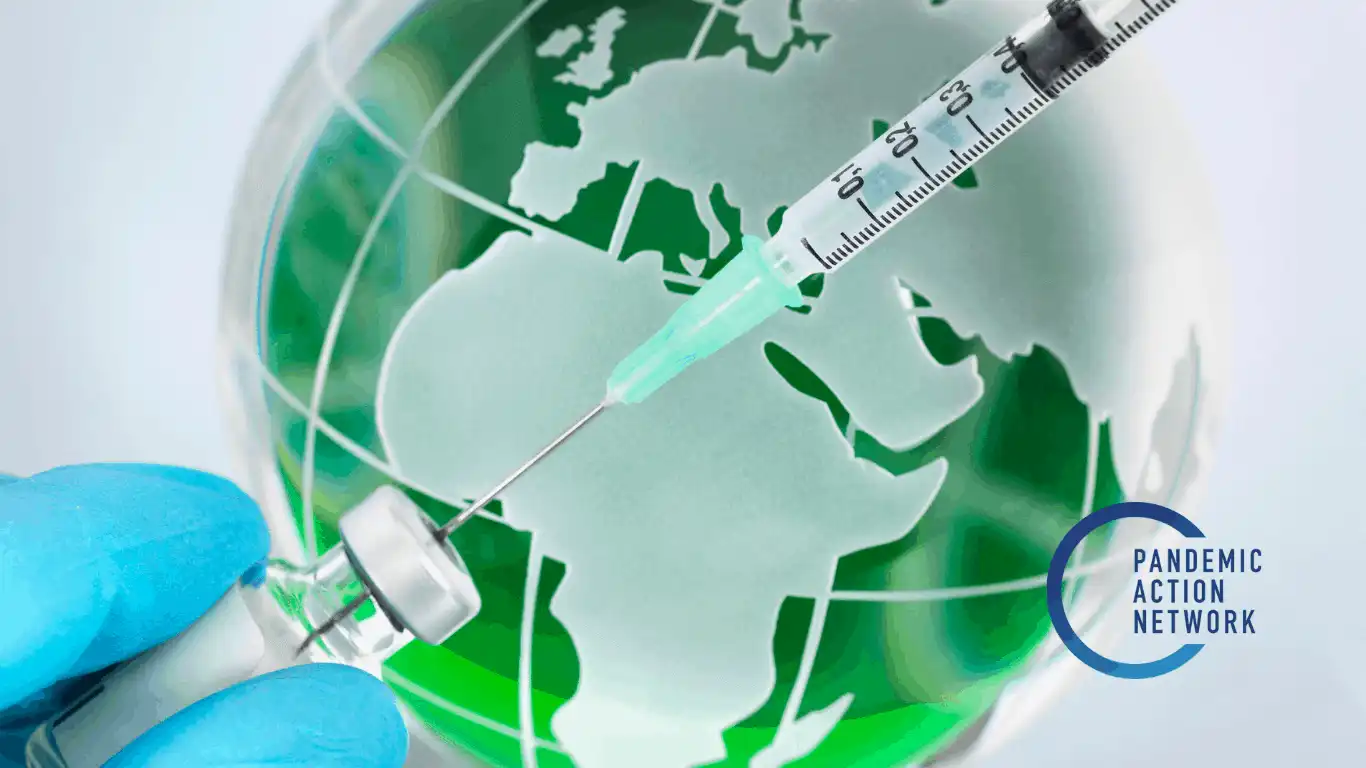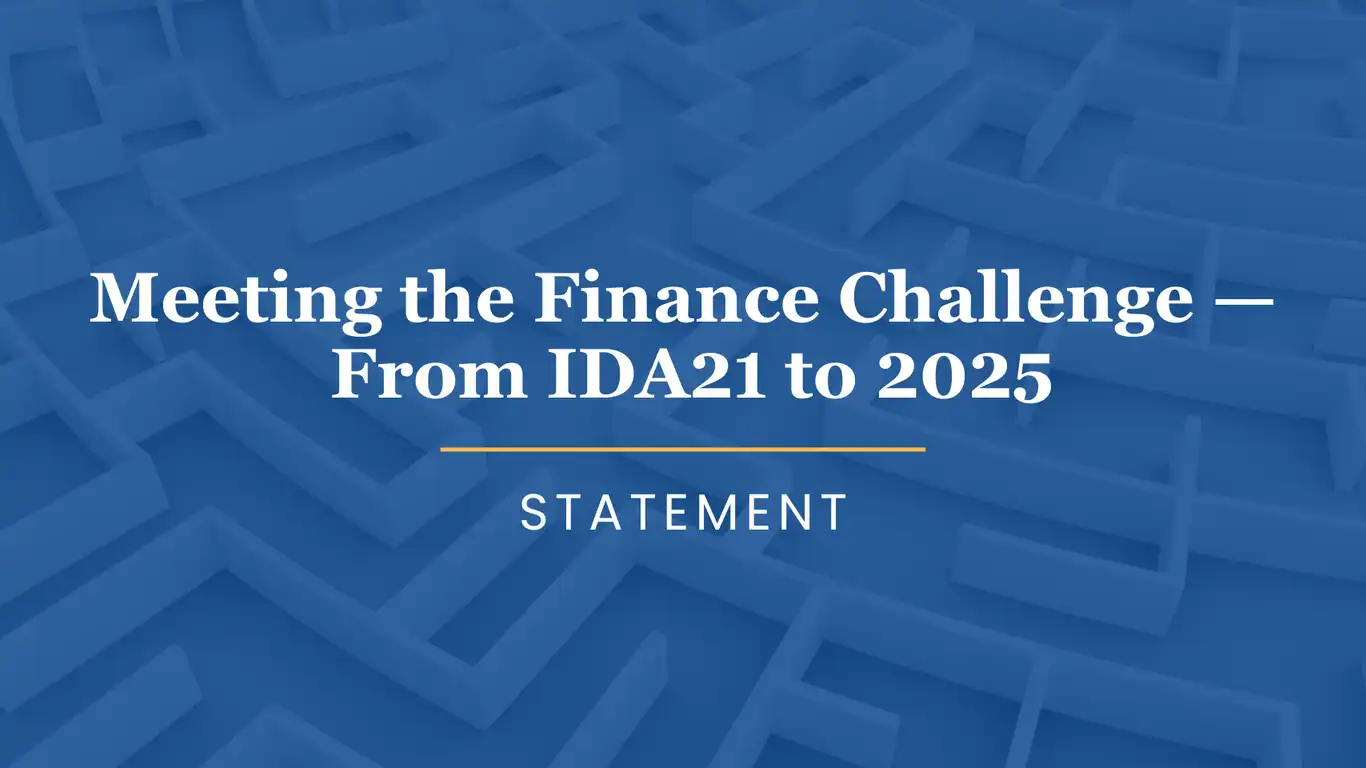By Friederike Röder, Global Citizen & Eloise Todd, co-founder of the Pandemic Action Network
We’re one year into the pandemic but may now be entering a new, more optimistic phase — at least from a political point of view.
The new US administration is now in place, but there is momentum elsewhere too. Until recently, many leaders had been focused largely on domestic action and on short-term fixes. But there are now signs that leaders are starting to understand that airborne COVID-19 cannot be defeated within borders, and that global solutions are needed.
Last week’s informal G7 summit saw funding for the Access to COVID-19 Tools Accelerator (ACT-A) finally ratcheting up with important new commitments pledged.
Germany was the first G7 country to meet — and even surpass — its “fair share” contribution to the ACT-Accelerator, for which Chancellor Merkel deserves huge credit. Since the ACT-A was launched in May 2020, the financial gap has been reduced by $16 billion, including through a $4.3 billion contribution pledged during last week’s G7 summit.
The European Council on Thursday concluded that “strengthening the [World Health Organization] WHO and working towards an international treaty on pandemics” is necessary to enhance multilateral cooperation, and support for funding Europe’s fair share of COVAX — a facility designed to combat vaccine nationalism and ensure low-income countries have access to COVID-19 vaccines — was underlined.
On Friday, G20 finance ministers took a step towards new Special Drawing Rights (SDRs) — an IMF asset that could help provide crucial funding for COVID-19 response and recovery (you can read all about them here).
Kristalina Georgieva has been tasked to develop a proposal – with one more heave the G20 could make a decision in the coming weeks that could change the game for the global fight against COVID. An initial one-off issuing of these SDRs would give governments the security and fiscal space to fully fund the $22 billion that’s needed for ACT-A, but would also help low-income countries go from 20% to 60% coverage in terms of vaccination coverage, help address the many impacts of COVID-19, and invest in pandemic prevention and preparedness. The G20 have requested the IMF to work out a proposal that could help achieve this.
There are further reasons to be hopeful about the global COVID-19 response, too. For example, the one-shot Johnson & Johnson vaccine, which can be kept at refrigerated temperatures, has now been approved by the US Food and Drug Administration (FDA).
This vaccine could be a game-changer, in particular for poorer countries that don’t necessarily have the infrastructure to be able to keep vaccines at very low temperatures. The Pfizer vaccine, for example, needs to be stored at below -60 degrees C, which isn’t possible without advanced cold supply chains.
What’s more, the European Commission is exploring how to boost local production capacities under licencing arrangements in Africa, a much needed initiative as we need to increase supply.
While all of the above is encouraging, it doesn’t yet add up to the scale of ambition needed to end this pandemic and prevent the next.
We need a comprehensive roadmap with government, private sector, and multilateral action towards achieving 60% vaccine coverage for the world, in line with the minimum coverage the WHO says is needed to break the chain of transmissions.
Such a roadmap will allow us to reverse engineer this objective and set ourselves a date for completion. It will need to provide solutions to quickly ensure equitable vaccine distribution across the world, increasing supply accordingly, and ensuring we have the means to prevent and prepare for any future pandemic.
Key pieces of such a roadmap are already out there.
French President Emmanuel Macron last week called for rich countries to donate 5% of their vaccine doses to low-income countries immediately, prioritizing health care workers.
Less than half a percent of the vaccine donations currently pre-purchased by the G7 (including the whole of the EU) would be enough to vaccinate all health care workers in Africa, and thereby make real progress in limiting the spread of the virus for all of us.
Vaccine nationalism is a serious obstacle in ending COVID-19 everywhere. Even if 100% of one country’s population receives the most effective vaccine, that will mean very little if a vaccine-resistant mutant develops anywhere else in the world.
While leaders, especially from the G7, have spoken frequently about taking global action for nearly a year now, in reality, current vaccine distribution is deeply unequal and needs urgent interventions to plug the gap in supply to low- and middle-income countries.
As President of the European Commission Ursula von der Leyen put it, in her foreword to Global Citizen’s white paper A Recovery Plan for the World: “A global vaccination campaign is the most effective way to drive down the virus’ capacity to evolve” and is, therefore, our only way out of the crisis. More leaders need to start accepting this reality and be courageous enough to defend it.
Such a roadmap towards global vaccination coverage also needs to include concrete steps to increase manufacturing capacity worldwide, particularly in regions, such as Africa, that currently have very little.
Building on the EU Commission’s initiative, this now requires real commitment from both governments and pharmaceutical companies to support and develop partnerships to share expertise and expand global manufacturing, with both public and private investment.
For all of this to happen, future finance needs to move faster than any virus. The setting up of ACT-A in record time is to be applauded, but in future such mechanisms need the finance on tap, ready in advance of pandemics striking for the countries that need it most.
The issuing of SDRs could not only be the financial response of scale we need to end COVID-19 and to fuel a global, sustainable recovery, but could also allow us the time needed to find the long-term financing mechanisms that will be essential in the future.
Achieving vaccine access for all, ramping up manufacturing in low- and middle-income countries, and ensuring adequate finance for pandemic prevention, preparedness, and response are all issues the G20 Global Health Summit — which will be jointly hosted by the Italian Presidency and the EU Commission in Rome in May — is well placed to tackle.
We are calling on the G20 Presidency and the European Commission to convene the world to agree on a clear road map focused on vaccine access, manufacturing, and sustainable finance to make sure we end this pandemic and prevent, and prepare for, the next.
This is the year, this is the opportunity — there is no option but to take this path.



